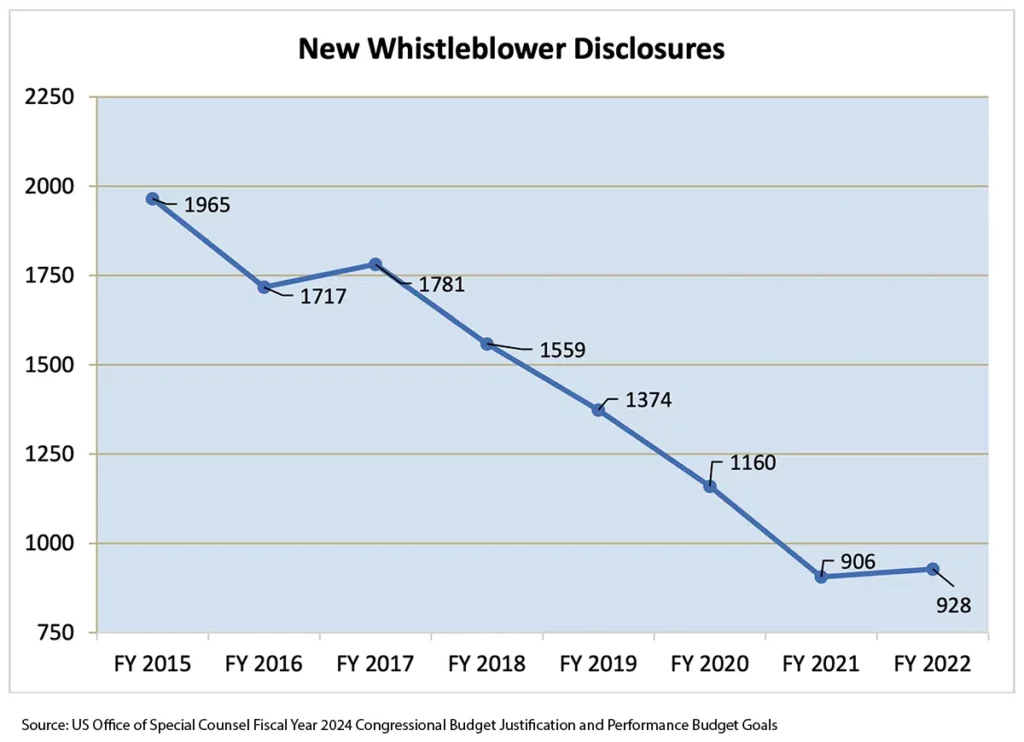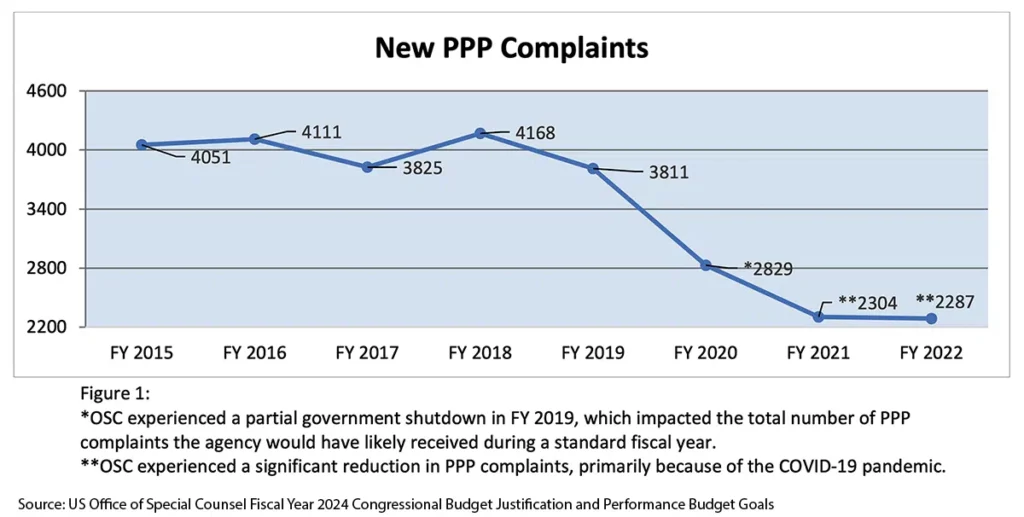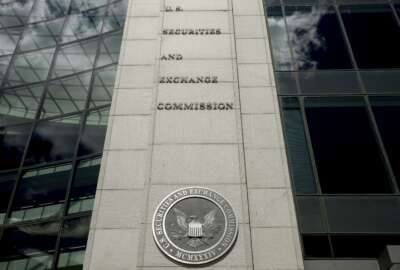Federal employee whistleblower complaints to OSC fall by nearly half over 5 years
During the same time, OSC saw a more than 40% drop in the number of complaints of prohibited personnel practices, such as whistleblower retaliation complaints.
Federal employees are filing fewer whistleblower disclosures, and reporting fewer complaints of whistleblower retaliation.
The Office of Special Counsel, according to recent data analyzed by Public Employees for Environmental Responsibility (PEER), saw a more than 48% decline in whistleblower disclosures between fiscal 2017 and 2022.
During the same time, OSC saw a more than 40% drop in the number of complaints of prohibited personnel practices, such as whistleblower retaliation complaints.
It remains unclear what factors contributed the most to these significant declines. But PEER says the drop in whistleblower complaints corresponds with a steady increase in workforce satisfaction scores, as measured by the annual Federal Employee Viewpoint Survey (FEVS).
PEER Executive Director Tim Whitehouse, a former senior enforcement attorney with the Environmental Protection Agency, said in a press release Wednesday that “happy employees do not tend to file complaints.”
“Overall, the conditions have improved dramatically under this administration for federal workers,” Whitehouse said in an interview Wednesday.
PEER, however, points out some caveats to the OSC data.
OSC, in its fiscal 2024 congressional budget justification, said the drop in prohibited personnel practices “is primarily due to the COVID-19 pandemic, which continued to have significant operational impacts upon federal departments and agencies in FY 2022.”
Likewise, OSC states it “would have received more [whistleblower] disclosures in FY 2022, if not for the COVID-19 pandemic.”
Whitehouse said the shift to mandatory telework that started in 2020 may have, in some cases, limited instances of workplace harassment, or decreased employee awareness of conditions in the field.
“Particularly if you have management that is overbearing, working at home can provide the space that you might need for some people,” Whitehouse said.
The Merit Systems Protection Board didn’t have a quorum between January 2017 and March 2022, and was legally prohibited from issuing decisions on federal employee appeals cases. resulting in a backlog of nearly 3,800 cases.
Whitehouse said it’s possible that the MSPB backlog had a chilling effect on federal employees, and deterred them from pursuing new whistleblower retaliation complaints.
“The process can be very cumbersome, very slow, and extremely stressful for the person making the whistleblower complaints. So when the MSPB did not have a quorum, it was a further disincentive for whistleblowers to file complaints, because they would know that the agencies could sit on it,” he said.
Despite handling fewer cases, OSC has not significantly reduced processing time. About a fifth of its cases took the agency more than eight months to process.
“OSC has extremely limited resources and is slow to act even in the best of times. So that is a huge problem that Congress can address, to make sure OSC has the resources and authority to do that,” Whitehouse said.
“I think that is a legitimate reading or concern, that if whistleblowers feel their cases will not be acted upon quickly and fairly, then they won’t file these complaints,” Whitehouse added. “That is a legitimate point that could describe some of the drop in these whistleblower disclosures.”
The data also only accounts for whistleblowers’ disclosures and complaints submitted to OSC.
Among its duties, OSC handles complaints under the Whistleblower Protection Act, the Civil Service Reform Act and the Hatch Act — among other laws — but is not a federal employee’s only recourse for whistleblowing.
Whitehouse said the data doesn’t account for other whistleblowing options available to certain federal employees, and that the OSC data is “just a small snapshot of what’s happening in the federal government.”
“This is just a snapshot of those who have decided to take what is one of the most difficult, if not the most difficult decisions they will ever make in their careers,” he said.
While it remains unclear what’s led to the decline in whistleblower complaints, Whitehouse said the data suggests a “positive statement that things are improving under the Biden administration for federal workers” — although he added that federal employees still face challenges when filing whistleblower complaints.
“It’s always important that potential whistleblowers know that navigating the bureaucracy of filing a whistleblower complaint is extremely treacherous,” Whitehouse said. “This is not something that’s easy to do, and those that are thinking about entering this process really need to make sure they have good legal counsel.”
Copyright © 2025 Federal News Network. All rights reserved. This website is not intended for users located within the European Economic Area.
Jory Heckman is a reporter at Federal News Network covering U.S. Postal Service, IRS, big data and technology issues.
Follow @jheckmanWFED








